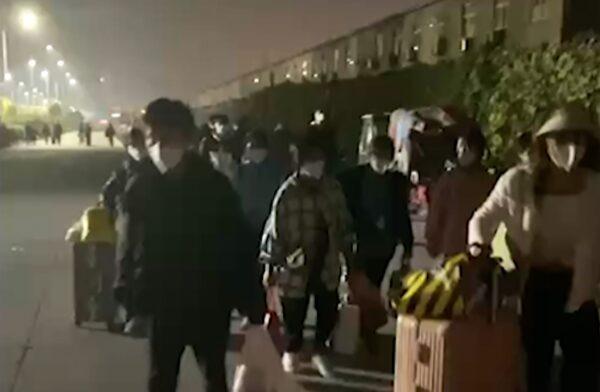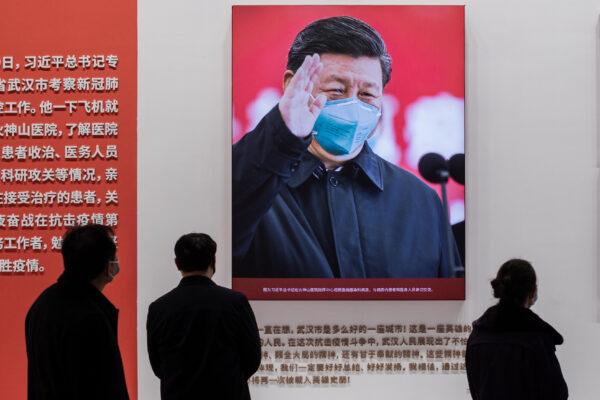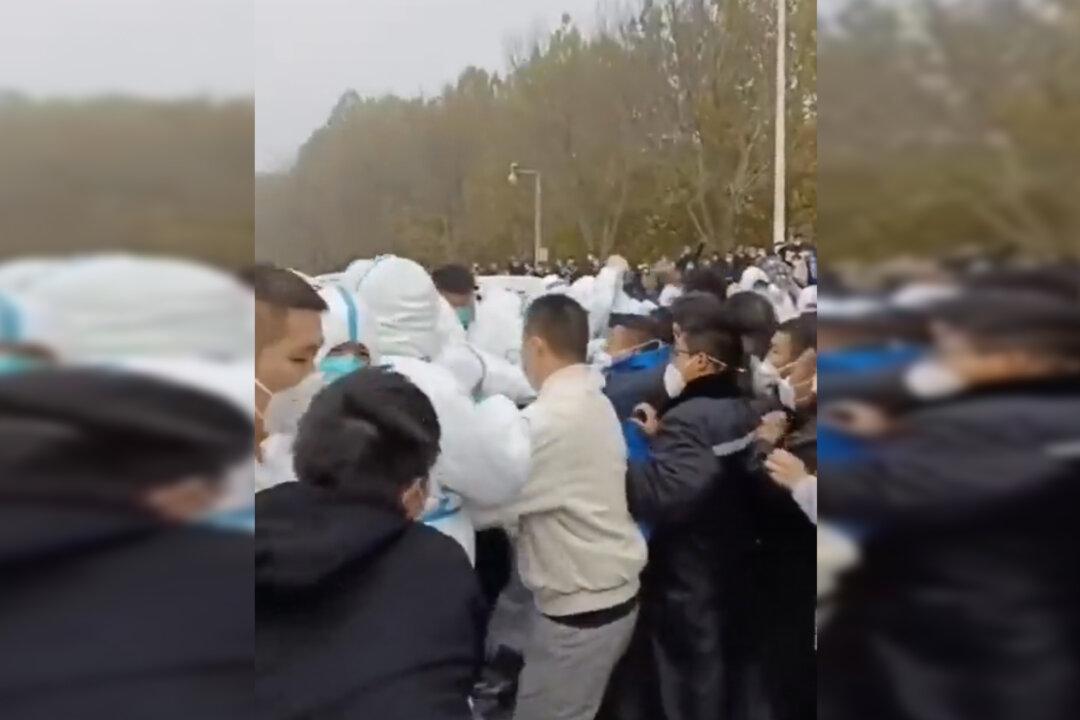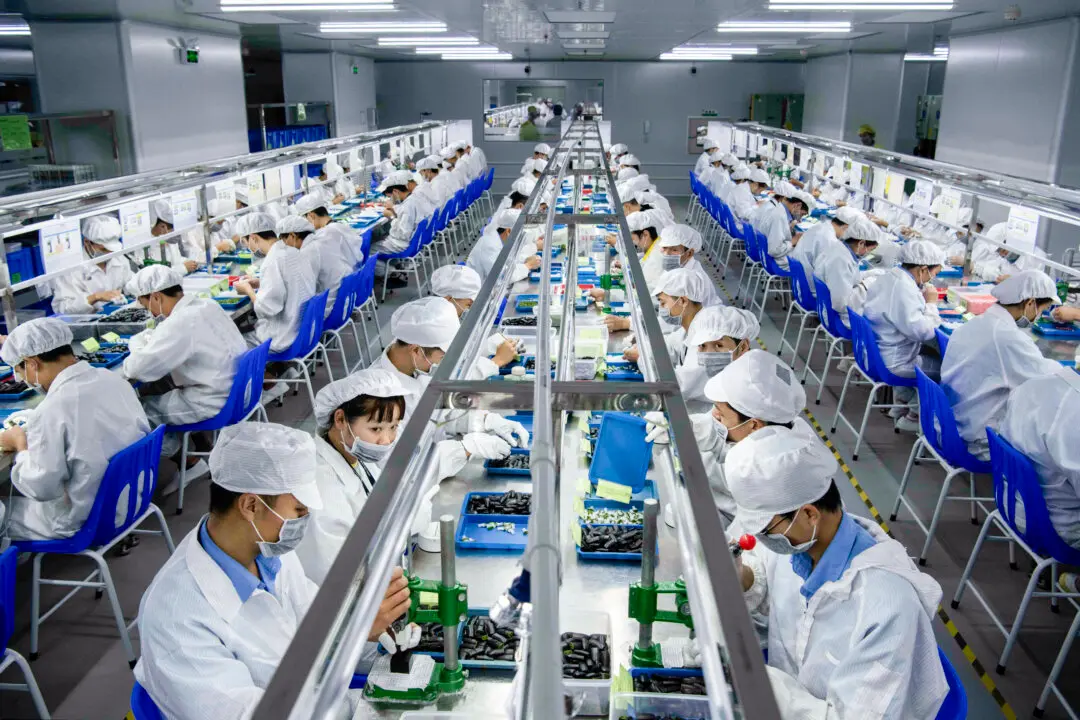Hundreds of workers clashed with police at the world’s largest iPhone assembly facility in China, which has been placed under COVID-19 lockdown in recent weeks, according to online videos and workers at the site.
What triggered the protests, which broke out in the late hours of Tuesday, was a delayed bonus and fears of infection, four new workers at the plant told The Epoch Times. Hundreds of white-clad police, including anti-riot police, swept onto the scene and beat protesters with batons, they added.
Seven or eight police repeatedly struck a person with sticks, and blood was streaming from his head, a worker told The Epoch Times. “It’s so dangerous. I was trying to flee when I saw the scene.”
The rare unrest in the central Chinese city of Zhengzhou, the capital of Henan Province, marked an escalation of discontent since the factory imposed a lockdown in October. More than 200,000 staff at the iPhone assembly plant were isolated from the outside, working and living on the site under the closed-loop system as the city tried to contain fresh outbreaks.

To retain staff and attract more workers, Foxconn has had to offer bonuses and higher salaries. Local authorities also stepped in, with some urging retired soldiers and Chinese Communist Party (CCP) members to take on shifts, according to local media reports.
“We were deceived,” said a second worker from the southern city of Shenzhen. He claimed the company denied the bonus and delayed the payment they had promised in online contracts. “I traveled more than 1,500 km (970 miles) [for the job] and then they changed the terms of contract.”
Chinese cities often require people to be quarantined when they arrive. The mandatory payment is often for hotel accommodation, and they need to pay for food as well.
A third worker said they were forced to share dormitories with colleagues who had tested positive for COVID-19.
In a statement issued early Wednesday morning, Foxconn said it had fulfilled its payment contracts and that reports of infected staff living on campus along with new recruits were “untrue.”
“Regarding any violence, the company will continue to communicate with employees and the government to prevent similar incidents from happening again,” the company added.
Tuesday’s protest underscores the build-up of frustration with the regime’s ultra-harsh COVID rules. The regime’s zero-COVID policy—which relies on snap lockdowns, mass surveillance, and mandatory quarantines—has dragged down the country’s economy and wreaked havoc on global supply chains.
“Zero-COVID has been a cover [by the CCP] to expand political control,” Dr. Rory Truex, assistant Professor of Politics and International Affairs, said during a hearing on Nov. 16.
As of Wednesday afternoon, most of the footage on Kuaishou, a short-form-video app that is popular in China, had been taken down, according to Reuters.

The latest curbs and discontent among workers are expected to further hamper Apple Inc.’s production. Foxconn is Apple’s biggest iPhone maker, accounting for 70 percent of iPhone shipments globally. It makes most of the phones at the Zhengzhou plant, though it also has other smaller production sites in India and southern China.
Earlier this month, Apple issued a rare warning that the COVID restrictions in Zhengzhou “significantly” impacted its iPhone supply chain—especially the high-end iPhone 14 models—ahead of the peak holiday season.
“I don’t want to work here anymore. I want to go home,” a 48-year-old worker from a neighboring Xinxiang city said on the phone. “I never worked in an electronics factory. You have to keep a standing position all day. I can’t bear it.”




